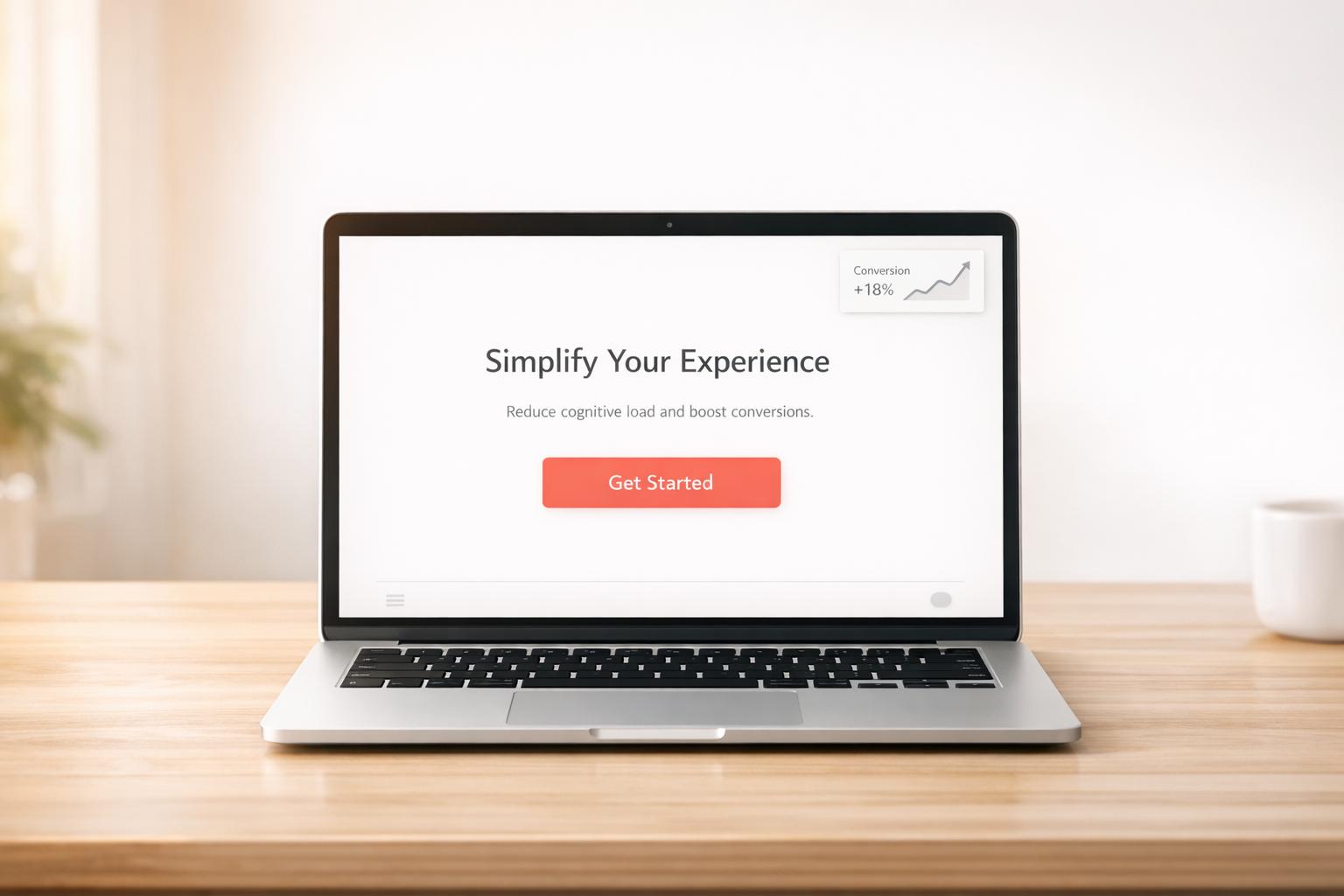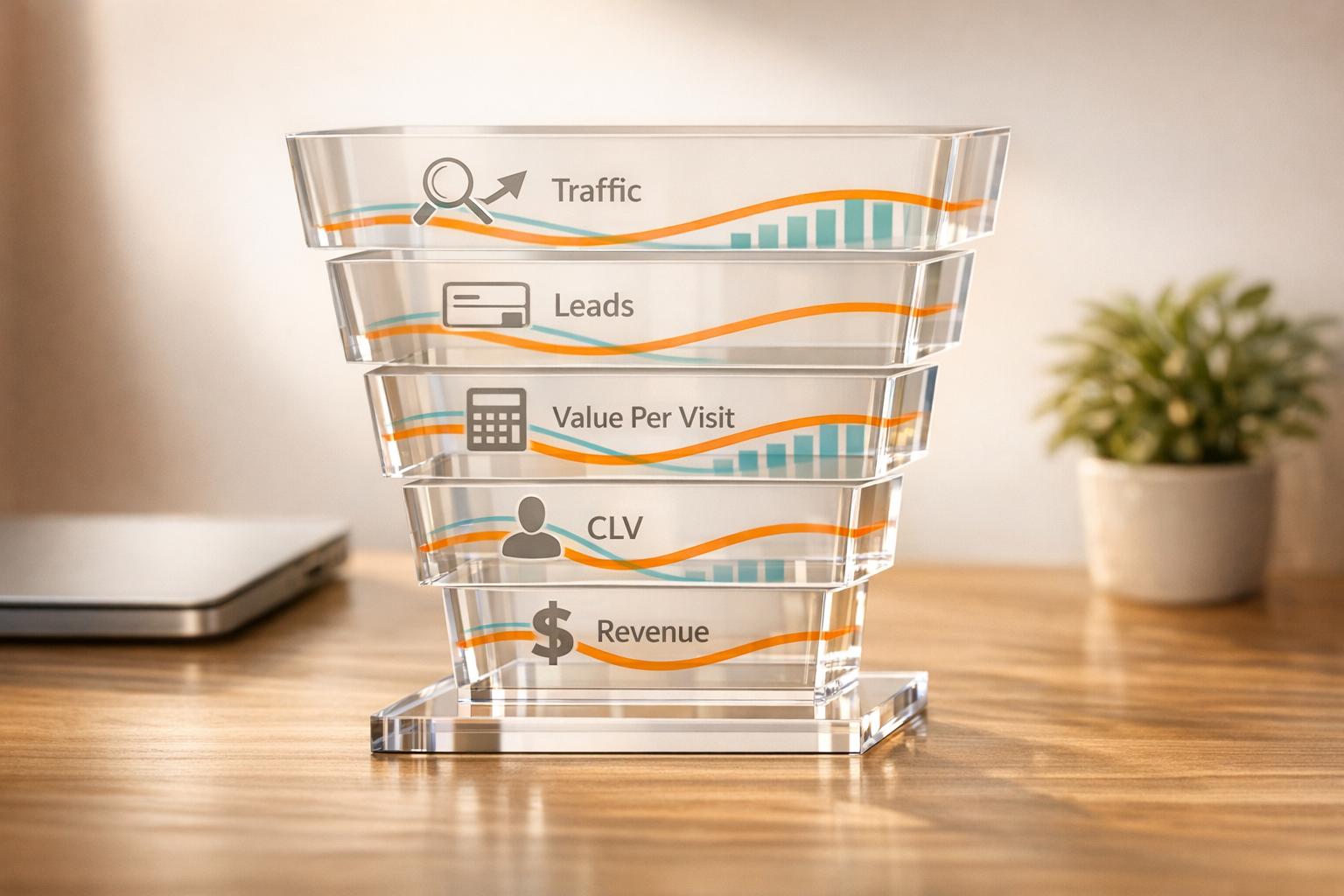

Rank Higher in Search Engines Without Losing Your Mind

Rank Higher in Search Engines Without Losing Your Mind
 24-03-2025 (Last modified: 24-03-2025)
24-03-2025 (Last modified: 24-03-2025)
So, you built a website. Maybe even a shiny new one with a fancy font and a slideshow. But when you Google your business, you’re buried under page three – right next to conspiracy forums and that blog from 2009.
Sound familiar?
If you’re wondering how to rank higher in search engines, you’re not alone. It’s one of the biggest pain points for small business owners trying to stand out online. But here’s the good news: with the right SEO strategies (and a sprinkle of patience), you can climb those rankings – and you don’t need a PhD in Google-speak to do it.
Let’s break down how to get your site noticed, clicked, and loved by both search engines and humans.

1. Get Cozy with Keywords (But Don’t Overdo It)
First things first: keywords are still king. But stuffing your homepage with “best cupcakes Nottingham” 47 times isn’t doing you any favours.
Here’s what to do instead:
- Start with intent: What are your customers actually searching for? Use tools like Google Keyword Planner, Ubersuggest, or AnswerThePublic to get ideas.
- Focus on long-tail keywords: These are more specific and less competitive. For example, “gluten-free cupcake delivery Nottingham” will likely convert better than just “cupcakes”.
- Use them naturally in your titles, meta descriptions, headers, and content.
Remember, the goal is to rank higher in search engines and make sense to real people.
2. Write for Humans First, Algorithms Second
Search engines are smart. Like, weirdly smart. They can tell when you’re writing just to tick SEO boxes.
Instead of trying to game the system, create genuinely helpful content that answers questions your audience is asking.
For example:
- FAQs about your service
- “How-to” guides (like this one!)
- Product comparisons or reviews
- Local area pages (if you’re targeting specific towns or cities)
Consistently publishing relevant content can help you rank higher in search engines over time – and build trust with your audience while you’re at it.
3. Sort Out Your On-Page SEO (No, It’s Not That Scary)
Think of on-page SEO like tidying your room before guests arrive. It’s all about making your site easy to read and navigate—for both users and Google.
Here’s a quick checklist:
- Title tags: Make them clear, clickable, and include your keyword.
- Meta descriptions: These don’t directly impact rankings but can boost your click-through rate.
- Headers (H1, H2, H3): Use them to break up content logically.
- Image alt text: Helps with accessibility and gives search engines context.
- Internal links: Link to other pages on your site to keep people browsing.
Bonus tip: Make sure your URL structure is clean and keyword-friendly. “/services/seo-consulting” is way better than “/page?id=8723”.
4. Speed Up Your Site (Or Say Goodbye to Visitors)
People are impatient. If your site takes more than a few seconds to load, most folks will bounce—and Google notices.
To rank higher in search engines, you need to be fast. Here’s how:
- Compress images (try TinyPNG)
- Use a reliable hosting provider
- Install caching plugins (if you’re on WordPress, look into WP Rocket or W3 Total Cache)
- Minify CSS and JavaScript
- Use a Content Delivery Network (CDN) like Cloudflare
Run your site through PageSpeed Insights for a free audit. It’ll tell you exactly what’s slowing things down.
5. Make Your Site Mobile-Friendly (Seriously, Just Do It)
Over 60% of searches happen on mobile devices. If your website still looks like a 2004 desktop relic on a phone, it’s time for a makeover.
Google prioritizes mobile-first indexing, so if your mobile version is clunky or hard to use, your rankings will take a hit.
Tips:
- Use responsive design
- Avoid tiny text and hard-to-tap buttons
- Test with a Mobile-Friendly Test such as the one by Google Chrome
This one change alone can help you rank higher in search engines – and keep users sticking around longer.
6. Get Those Backlinks (The Good Kind)
Think of backlinks as endorsements from other sites. The more reputable sites link to you, the more trustworthy you look to Google.
Some ways to earn backlinks:
- Write guest posts for industry blogs
- Get listed in local directories
- Partner with local businesses or events
- Create shareable content (think infographics, stats, or useful guides)
- Register with 3Way.Social to easily buy and sell relevant links and posts with other users

Whatever you do, don’t buy backlinks from shady sites that seem too good to be true. It’s the SEO equivalent of putting fake reviews on TripAdvisor – it might work short-term, but it’ll bite you later.
7. Track What’s Working (and What’s Not)
SEO isn’t a one-and-done job. You’ve got to keep an eye on your progress.
Use tools like:
- Google Search Console – great for spotting issues and seeing what keywords you’re ranking for
- Google Analytics 4 – to understand where your traffic is coming from
- Ahrefs or SEMrush – if you’re ready to go pro
- PageTest.AI – for A/B and multivariate testing your headings and content on-page
Check in regularly to tweak your strategy and celebrate small wins. Ranking higher in search engines takes time, but every step forward counts.
Final Tips for Small Business Owners
- Claim your Google Business Profile: It helps you show up in local search and Maps.
- Keep your content fresh: Update old blog posts and pages regularly.
- Ask for reviews: Google loves them, and so do your future customers.
- Don’t ignore social media: Shares and engagement can indirectly boost your SEO.

TL;DR
If you want to rank higher in search engines, here’s your quick-start guide:
- Pick smart, relevant keywords
- Write content that solves real problems
- Optimise your site’s structure and speed
- Go mobile-friendly
- Earn high-quality backlinks
- Track your results and adjust
You don’t need to become an SEO wizard overnight – just start with a few of these tips and build from there. Google won’t crown you #1 by tomorrow morning, but if you stay consistent and strategic, you’ll start climbing.
And if all else fails? You’ve always got us at PageTest.AI ready to help you test what works.
say hello to easy Content Testing
try PageTest.AI tool for free
Start making the most of your websites traffic and optimize your content and CTAs.
Related Posts

 16-02-2026
16-02-2026
 Ian Naylor
Ian Naylor
How Cognitive Load Impacts Conversion Rates
Reduce cognitive load with simpler layouts, clearer CTAs, and fewer choices to cut friction, improve UX, and lift conversion rates—backed by tests and metrics.

 14-02-2026
14-02-2026
 Ian Naylor
Ian Naylor
Ultimate Guide To SEO Conversion Metrics
Measure how organic traffic converts into leads and revenue. Learn key metrics, GA4 setup, Value Per Visit, CLV, and optimization tactics.

 12-02-2026
12-02-2026
 Ian Naylor
Ian Naylor
SEO Content Optimization Planner
Create search-friendly content with our SEO Content Optimization Planner. Get a custom plan to rank higher—try it free today!
